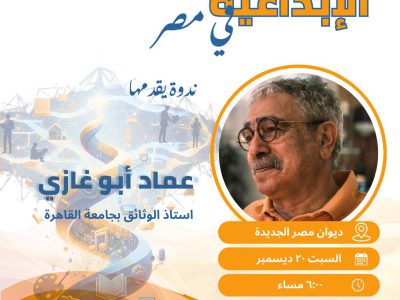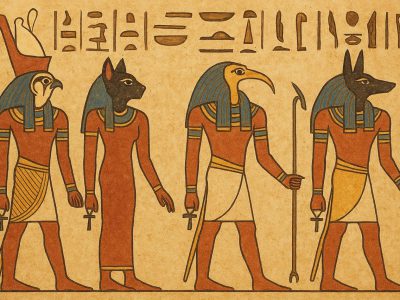The principle of community partnership is one of the pillars of heritage sites management. This training course helps explore the theory and principles of community engagement in the stewardship and management of cultural and natural heritage. It also delves into the value of participatory approaches in interpreting, managing, and ensuring the sustainability of heritage sites. The course presents key successful international and regional practices based on involving local communities in heritage management, drawing on the scientific frameworks of international organizations such as UNESCO, ICOMOS, and ICCROM.
This educational course serves as a guide and methodology for managing community partnership processes in a simple and effective scientific manner. It is suitable for all heritage preservation practitioners, from those working on heritage projects within government bodies to civil society organizations, NGOs, and residents of heritage areas.
By the end of this course, the learner/ trainee will be able to:
- Have clear understanding of the concept of community partnership in heritage preservation through local and global models, and within the framework of human rights and development.
- Defining roles and responsibilities of civil society, the state, and the private sector in participatory heritage preservation.
- Understand the methodologies and strategies of community engagement according to global framework.
- Developing skills in networking and participatory planning, including the ability to design joint initiatives or projects for heritage preservation, manage ,monitor and evaluate it.
- Producing an action plan or initial initiative.
- Enhancing the sense of community ownership of heritage through stories and experiences that show how communities have contributed to preserving their heritage.
- Raising participants’ awareness of the risks of cultural marginalization Or the unintended destruction of heritage due to development projects or lack of awareness of heritage value.
Course Features
- Lectures 20
- Quiz 0
- Duration 1680:00:00
- Course Duration 06:06:00
- Skill level All levels
- Language Arabic
- Students 3
- Assessments Yes
Curriculumm
- 7 Sections
- 20 Lessons
- 10 Weeks
- Module 1: Introduction to Cultural and Natural Heritage3
- Module 2: Introduction to Community Partnership2
- Module 3: Effective Community Engagement3
- Module 4: Community Partnership Methodology6
- Module 5: Community Engagement in Tourism2
- Module 6: Legal Frameworks and Sustainable Development in Community Engagement4
- References1.Arabic References:
- .المبادئ التوجيهية لتنفيذ اتفاقية التراث العالمي 2019- اللجنة الدولية الحكومية لحماية التراث العالمي الثقافي والطبيعي -مركز التراث العالمي – اليونسكو -2020.
- .وقائع الملتقي العربي الأول للتراث الثقافي – إيكروم الشارقة -الإمارات العربية المتحدة 2018.
- .اتفاقية بشأن صون التراث الثقافي غير المادي – يونسكو -باريس 2003.
- .اتفاقية صون التراث الثقافي غير المادي اللجنة الدولية الحكومية لصون التراث الثقافي غير المادي. https://www.unesco.org/ar/intangible-cultural-heritage
- 2. English References:
- . Heritage and the Sustainable Development Goals: Policy Guidance for Heritage and Development Actors- ICOMOS-2021.
- . UNESCO Convention Concerning the Protection of The World Cultural and Natural Heritage -World Heritage Committee- 31 session, New Zealand 2007, Item 13 of the Provisional Agenda. https://whc.unesco.org/archive/2007/whc07-31com-13be.pdf .
- . Engaging Local Communities in Stewardship of World Heritage A methodology based on the COMPACT experience- World Heritage Paper Series No. 40- UNESCO, 2014.
- . Eilleen Gutierrez et al., Linking Communities, Tourism & Conservation A Tourism Assessment Process, Washington DC,2005. .
- . 3. Links:
- https://www.un.org/peacebuilding/sites/www.un.org.peacebuilding/files/documents/un_community-engagement_guidelines.august_2020.pdf .
- . Brisbane Declaration: https://cdn2.hubspot.net/hubfs/2619477/brisbane_declaration.pdf
0
Target audiences
- Local Authorities, such as employees of governorates or local councils who have roles in decision-making or implementing development projects.
- Community and Local Leaders including family elders, heads of NGOs, or influential youth in their communities.
- Representatives of Civil Society Organizations (NGOs) especially those concerned with development, culture, or heritage preservation.
- Artisans and Heritage Craftspeople as they are essential partners in preserving living heritage and need a broader understanding of their role in community.
- Professionals in the Tourism and Culture Sectors including staff from ministries or authorities, or those involved in cultural initiatives.
- Youth and Community Initiators in Heritage Areas especially those inclined toward social or cultural work.
- Media Professionals and Local Influencers to enable them to raise awareness about heritage and community participation issues.





